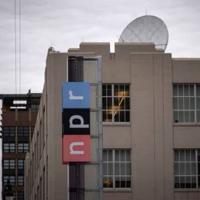National Public Radio (NPR) has asked a federal judge to halt the Corporation for Public Broadcasting (CPB) from awarding a $57.9 million grant to a newly formed public media consortium that is set to operate the satellite distribution system connecting public radio stations nationwide for the next five years.
The request for a temporary restraining order was filed Friday in federal court, marking a significant escalation in tensions within the public media system. NPR’s own report on the dispute notes that it comes against the backdrop of political turmoil, as Congress successfully eliminated all public broadcasting funds that had been previously approved for the next two years.
For more than 40 years, NPR has managed the satellite-based Public Radio Satellite System (PRSS), which enables hundreds of public radio stations and independent producers to share programming. Many of the stations served have no formal affiliation with NPR.
The contested grant is separate from NPR’s general federal funding, which has historically accounted for 1% to 2% of its annual operating budget. By contrast, PBS member stations typically receive about 15% of their funding from CPB, while public radio stations receive around 10%, although this figure varies.
All public media subsidies are scheduled to end with the start of the new federal fiscal year on Wednesday.
In court documents, NPR claims that it was informed by CPB in early April that it would soon receive over $30 million for continued operations of the satellite service for the next three years, along with funding to cover the remainder of the current fiscal year. However, the filing alleges that CPB abruptly reversed course. According to NPR, a CPB executive informed them that a board-level decision had determined NPR could no longer be involved.
On Friday, CPB announced it had awarded the satellite system contract to a new consortium called Public Media Infrastructure (PMI). Members of PMI include New York Public Radio, PRX, American Public Media, and Station Resource Group, a consultancy. The National Federation of Community Broadcasters, representing smaller, often non-NPR affiliated stations, is also part of the group.
“We enter into this motion with great reluctance,” Maher added. “This decision has undercut the bonds between our two organizations forged over many decades of service to the American people, and stands as a regretful coda to CPB’s prior history of support for the First Amendment.”
NPR’s legal team, led by attorneys Miguel A. Estrada and Theodore J. Boutros Jr., argued in Friday’s filing that the decision is politically motivated and follows the White House’s lead.
“CPB is now poised to do the Order’s bidding, in contravention of both the First Amendment and the express mandates of the Public Broadcasting Act of 1967,” the filing states.
In its court filing, NPR asserts that CPB’s move to transfer the satellite system contract to PMI “threatens NPR’s contractual relationships with the Interconnected Stations and undermines the hard-earned trust that NPR has built with those stations over decades of service.”
NPR contends that without judicial intervention, the organization will be unable to reverse the decision in court, as CPB is expected to drastically scale back operations and retain only a limited staff to manage its closure.
In response to the lawsuit, CPB defended its decision.
“We are confident that our actions serve the best interests of the future of public radio,” a spokesperson said late Friday. “We are disappointed that, at a time of tremendous challenge for all public media with substantially diminished resources, NPR is forcing CPB to expend scarce funds that would otherwise support the public media system in defending a lawsuit that has no merits and ultimately does not benefit the system.”

